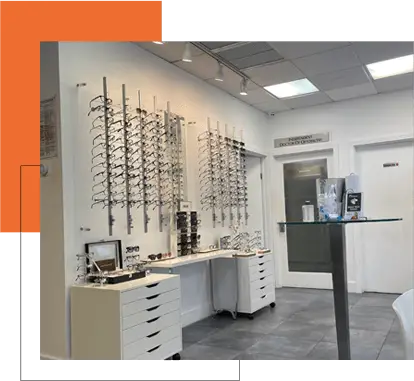Keratoconus

Eyes on Brickell is a renowned eye clinic in Miami, Florida that provides specialized care for patients with keratoconus. The clinic is led by a team of experienced eye doctors, including Dr. Antoine Copty, the best doctor for keratoconus has extensive experience in treating such conditions using a variety of advanced techniques.
At Eyes on Brickell, our team of doctors is committed to providing personalized and compassionate care to each patient, and we work closely with each individual to develop a customized treatment plan that addresses their unique needs and preferences. Our goal is to help our patients achieve the best possible vision and quality of life. Moreover, we also have a team of Keratoconus Eye Exam Specialists in Miami who are dedicated to staying up-to-date with the latest advancements to ensure that we are providing the most effective care possible.
What is Keratoconus?
Keratoconus is a progressive eye disease that affects the shape of the cornea, which is the clear, dome-shaped surface that covers the front of the eye. In people with keratoconus, the cornea becomes thin and bulges out into a cone-like shape, leading to distorted vision. It typically develops during adolescence or early adulthood and can progress slowly over many years.
While there is currently no cure for this condition, there are several treatment options available to help manage the condition and improve vision.

Normal Cornea

Keratoconus
What are the Symptoms Of Keratoconus?
Symptoms can vary from person to person, but some common ones include:
- Blurred or Distorted Vision: This is the most common symptom of keratoconus. As the cornea becomes more irregularly shaped, it can cause vision to become blurred or distorted, making it difficult to see clearly.
- Increased Sensitivity to Light: People with keratoconus may also experience increased sensitivity to light, which can make it uncomfortable to be in bright or sunny environments.
- Difficulty Seeing at Night: This condition can also make it difficult to see in low light conditions, such as at night or in dimly lit rooms.
- Halos or Glare Around Lights: The irregular shape of the cornea can cause light to scatter in different directions, leading to the appearance of halos or glare around lights.
- Frequent Changes in Eyeglass or Contact Lens Prescriptions : As the condition progresses, people with keratoconus may find that their eyeglass or contact lens prescription needs to be updated more frequently than usual.
If you are experiencing above symptoms or have been diagnosed with the condition, we invite you to schedule a consultation with our best keratoconus specialist at Eyes on Brickell to learn more about your treatment options and how we can help you achieve the clearer vision and improved quality of life.
Treatment of Keratoconus:
The treatment depends on the severity of the condition. The treatment options include:
- Eyeglasses or Soft Contact Lenses: Mild cases of keratoconus can often be managed with eyeglasses or soft contact lenses. However, as the condition progresses, these options may become less effective.
- Rigid Gas Permeable (RGP) Contact Lenses: RGP lenses are a type of hard contact lens that can help reshape the cornea, providing clearer vision for people with the same condition. They can be uncomfortable at first, but many people find that they get used to them over time.
- Scleral Lenses: These are larger diameter contact lenses that rest on the sclera (white part of the eye) and vault over the cornea. Scleral lenses can provide excellent vision correction, especially those with more advanced diseases.
- Corneal Cross-Linking: Crosslinking treatment in Brickell involves applying a special type of eye drop to the cornea, followed by exposure to ultraviolet light. This helps to strengthen the cornea and prevent further bulging.
- Corneal Transplant: In severe cases, a corneal transplant may be necessary. This involves replacing the diseased cornea with a donor cornea.
It’s important to note that the treatment approach for keratoconus will depend on the severity of the condition, as well as the individual needs and preferences of the patient. Our team of experienced eye doctors will work closely with you to determine the best treatment plan for your specific needs and goals. We take a personalized approach to care, ensuring that each patient receives the highest level of attention and individualized treatment. Our goal is to help you achieve the clearest vision possible, while also ensuring your overall eye health and well-being.
What to Expect
Here’s what you can expect during the fittings process. Generally, fittings take up to 3-4 visits but may take longer depending on your individual circumstances.
- During the first session, Dr Copty – a keratoconus eye doctor in Miami will conduct a painless series of tests to determine the best prescription, size, and style of lens for you. These tests include a refraction, corneal topography, evaluation of eye health, and contact lens fitting. Dr Copty will then order your custom lenses, which may take a few days to a couple of weeks to arrive.
- During the second session, you will try on your new custom contact lenses and Dr. Copty will make sure they fit properly and provide the best possible vision for your needs. He will also teach you how to properly insert, remove, and care for the lenses.
- In the third session, you will test the lenses in your personal environment and discuss any necessary adjustments with Dr. Copty. If no further changes are needed, the fitting process is successfully concluded.If you have any questions during the process, you can contact Dr. Copty’s office by phone or email.



